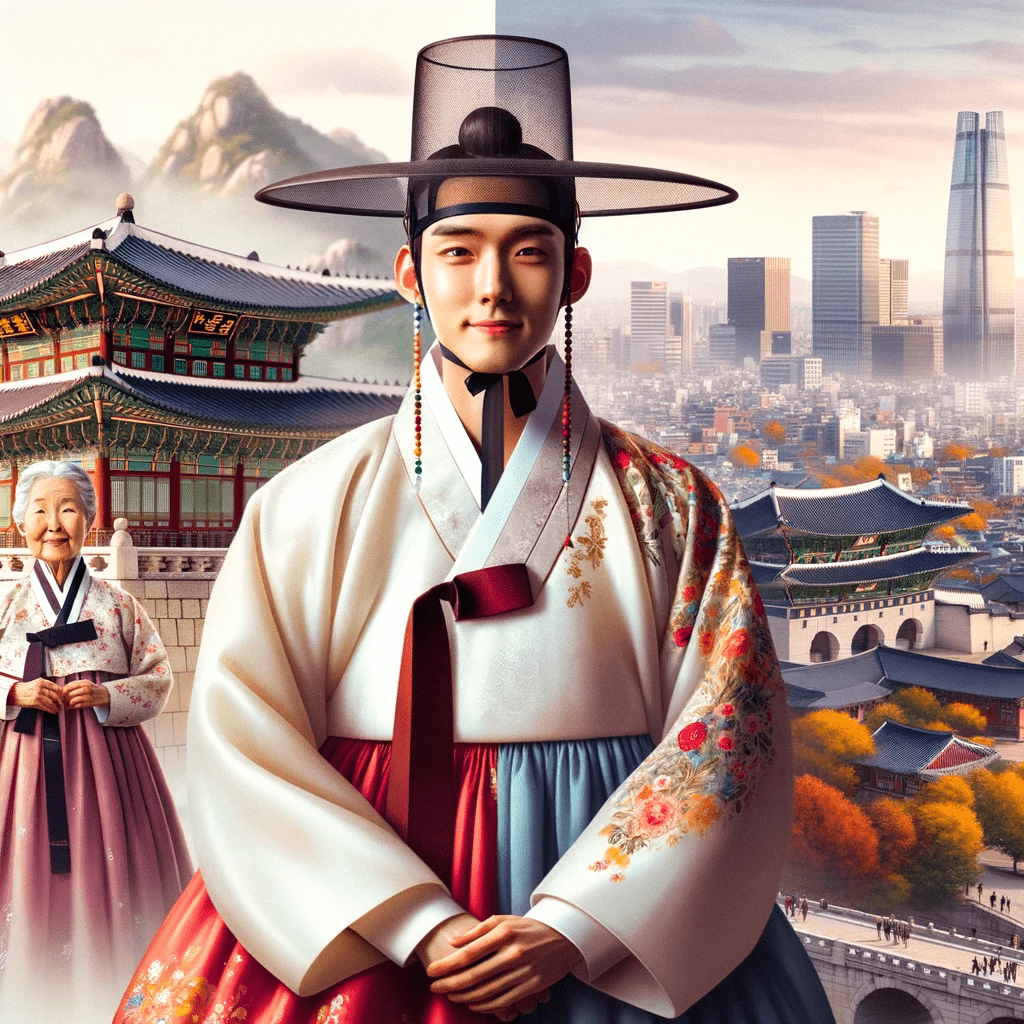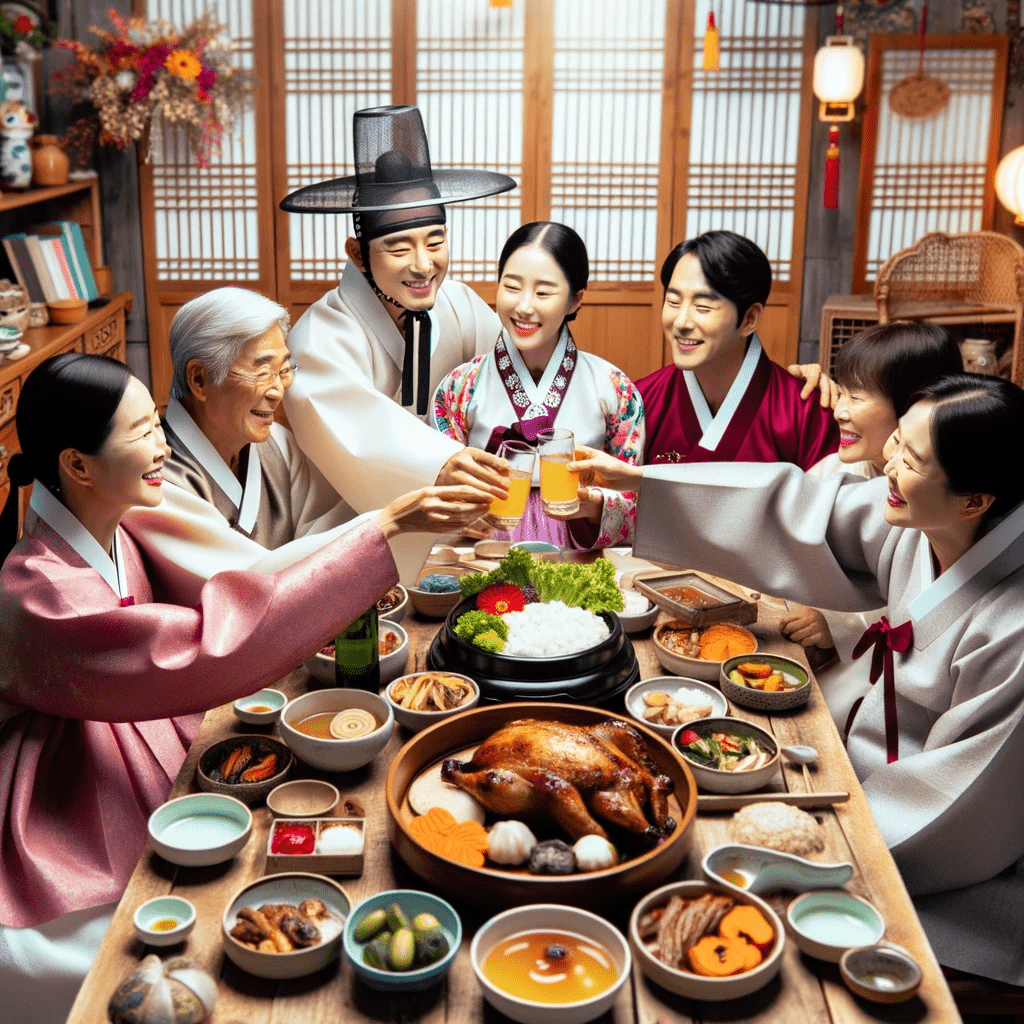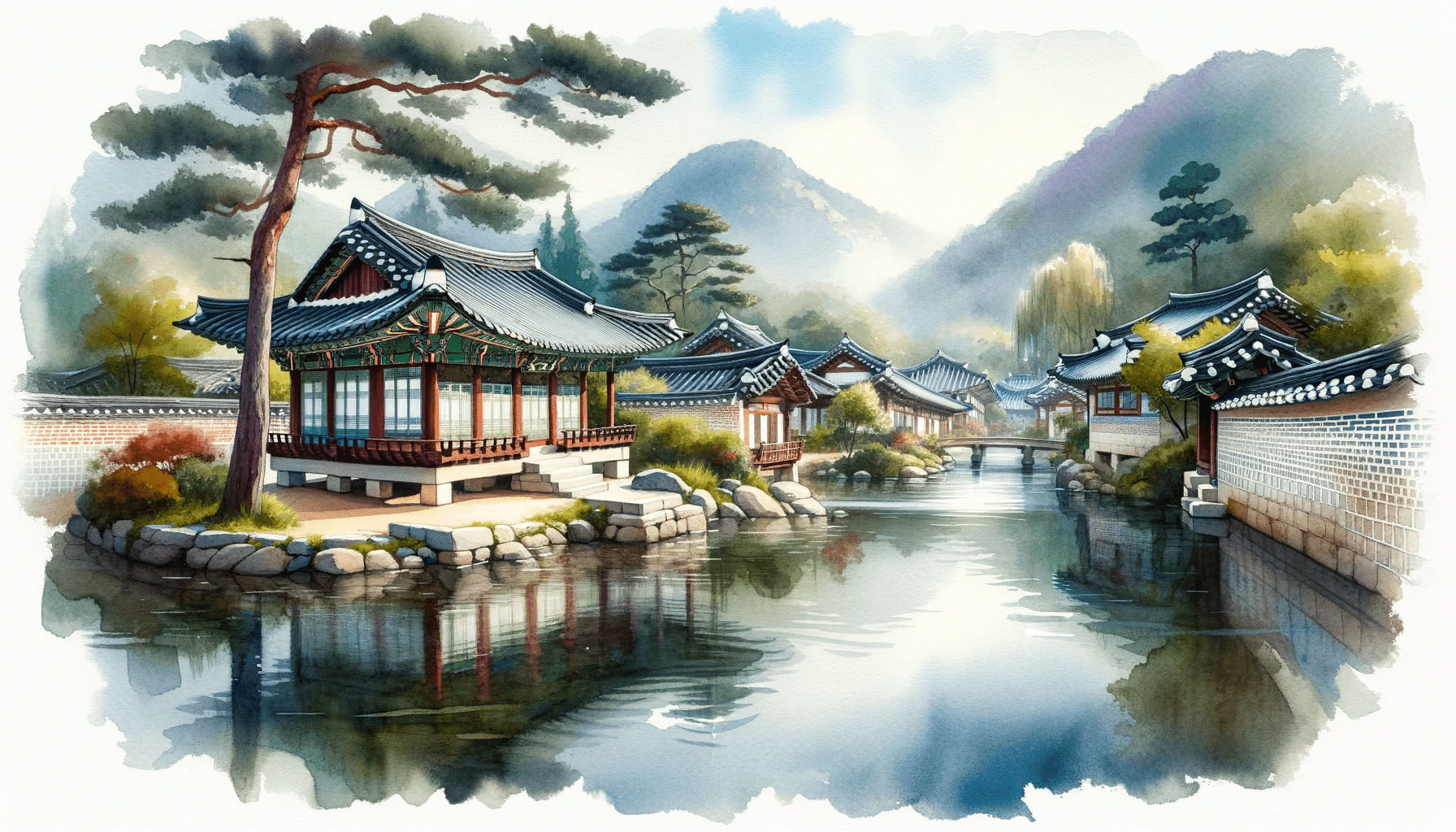Delving into the Rich Tapestry: From Time-Honored Traditions to Contemporary Trends in South Korea
What is Korean culture?
Korean culture refers to the customs, traditions, and way of life of the people in South Korea. It encompasses a rich heritage and a blend of tradition and modernity that captivate travelers from around the world. South Korea offers a vibrant and immersive travel experience, with its bustling cities, breathtaking landscapes, and fascinating traditions.Why is South Korea a popular travel destination?
South Korea has become a popular travel destination due to its unique blend of tradition and modernity. The nation has embraced its rich cultural heritage while also thriving in the global phenomenon of K-pop, K-drama, and Korean cuisine. From the bustling streets of Seoul to the serene and harmonious Jeju Island, South Korea offers a remarkable adventure for travelers to discover.How can a guidebook enhance your travel experience?
A guidebook can enhance your travel experience in South Korea by providing essential information about the must-visit cities, cultural landmarks, historical sites, and iconic dishes. It can help you navigate the bustling streets, immerse yourself in the captivating culture, and embrace the spirit of South Korea. Whether you are a first-time traveler or a seasoned explorer, a comprehensive guidebook will be your trusted companion on this unforgettable journey.Exploring South Korea
What are the must-visit cities in South Korea?
South Korea offers a plethora of must-visit cities that showcase the essence of its culture and heritage. From the bustling metropolis of Seoul to the historic city of Gyeongju and the coastal gem of Busan, each city has its own unique charm and attractions. Exploring these cities will allow you to delve into the heart of South Korean traditions while also experiencing the modernity and vibrancy of the nation. Certainly! Here are some key cities in South Korea and unique gems or interesting facts for foreign visitors: **Seoul:** – **Unique Gem:** Seoul is a dynamic blend of ancient traditions and modern technology. Don’t miss visiting Gyeongbokgung Palace, a beautiful royal palace set against the backdrop of skyscrapers. – **Interesting Fact:** Seoul has the world’s fastest internet speed and is home to tech giants like Samsung and LG. **Busan:** – **Unique Gem:** Haeundae Beach is a popular destination with a beautiful coastline, and nearby Gamcheon Culture Village offers colorful houses and art installations. – **Interesting Fact:** Busan is renowned for its fresh seafood, and you can enjoy delicious seafood dishes at the Jagalchi Fish Market. **Gyeongju:** – **Unique Gem:** Known as the “Museum Without Walls,” Gyeongju is filled with ancient tombs, temples, and historic sites like Bulguksa Temple and the SeokguramGrotto. – **Interesting Fact:** Gyeongju was the capital of the ancient Silla Kingdom, making it a treasure trove of Korean history. **Jeju Island:** – **Unique Gem:** Jeju Island offers breathtaking natural beauty, including the stunning Jeju Loveland, a sculpture park dedicated to sensuality and love. – **Interesting Fact:** Jeju is home to the Hallasan Mountain, South Korea’s highest peak, and has a unique culture with its own language and traditions. **Incheon:** – **Unique Gem:** Wolmido Island is a picturesque destination with an amusement park, beaches, and a waterfront promenade. – **Interesting Fact:** Incheon is home to South Korea’s main international airport, making it a common entry point for travelers. **Daegu:** – **Unique Gem:** Daegu is famous for its street food, and you can savor a variety of local dishes in the vibrant Seomun Market. – **Interesting Fact:** Daegu hosts the annual International Body Painting Festival, showcasing incredible body art from around the world. **Daejeon:** – **Unique Gem:** Daejeon is known for its scientific and research institutions. Visit the Expo Science Park for a glimpse into South Korea’s advancements in science and technology. – **Interesting Fact:** Daejeon is often called the “Silicon Valley of South Korea” due to its concentration of research centers and tech companies. **Suwon:** – **Unique Gem:** Suwon is famous for Hwaseong Fortress, a UNESCO World Heritage Site with impressive walls and architecture. – **Interesting Fact:** The city is known for its annual reenactment of the “Suwon Hwaseong Cultural Festival,” where visitors can experience traditional Korean culture and history. **Andong:** – **Unique Gem:** Andong is the hub of traditional Korean culture, known for its well-preserved hanok village and the Andong Mask Dance Festival. – **Interesting Fact:** Andong is famous for its traditional dish, Andong Jjimdak, a flavorful chicken and vegetable stew. Exploring these cities will provide foreign visitors with a rich and diverse experience of South Korean culture, history, and natural beauty.What does Korean heritage encompass?
Korean heritage encompasses a rich tapestry of ancient traditions, customs, and practices. It is deeply rooted in the country’s history and has shaped the identity of its people. From traditional arts and crafts to music, dance, and architecture, Korean heritage reflects the beauty and diversity of the nation’s cultural landscape. Exploring Korean heritage offers a glimpse into the ancient tapestry of Korean history and the spirit of its people.How can you immerse yourself in the vibrant culture of South Korea?
To immerse yourself in the vibrant culture of South Korea, you can join traditional festivals, visit cultural sites, and engage in cultural activities. Participating in events like the Boryeong Mud Festival or the Gwangju World Kimchi Culture Festival will allow you to interact with the locals and experience the lively atmosphere firsthand. Additionally, exploring traditional villages, temples, and museums will give you insight into the rich cultural heritage of the nation.Tradition and Modernity in Korean Culture
How does tradition blend with modernity in South Korea?
South Korea is known for its seamless blend of tradition and modernity. The nation has successfully embraced modern technologies and global trends while preserving its ancient traditions and customs. It is not uncommon to see people wearing traditional hanbok while using the latest smartphones or enjoying traditional Korean cuisine in a trendy café. This harmonious blend is a testament to the adaptability and innovative spirit of the South Korean people.What are some traditional Korean customs and practices?
Traditional Korean customs and practices include bowing as a form of greeting, practicing ancestral rites, and observing Confucian values. The Korean tea ceremony, traditional clothing such as hanbok, and traditional arts like calligraphy and pottery are also integral parts of the culture. These customs and practices showcase the deep respect for elders, the pursuit of harmony in relationships, and the appreciation for beauty in daily life that are characteristic of Korean culture.How can you delve into the heart of South Korean traditions?
To delve into the heart of South Korean traditions, you can visit historical sites such as Gyeongbokgung Palace in Seoul, Bulguksa Temple in Gyeongju, or the cultural village of Andong Hahoe. These sites have great historical and cultural significance and offer a glimpse into the traditions and values that have shaped Korean society. Additionally, participating in traditional performances, wearing hanbok, or learning traditional crafts like paper folding or kimchi making can provide a deeper understanding of South Korean traditions.Unveiling the Rich Cultural Heritage
What are the famous landmarks and historical sites in South Korea?
South Korea boasts a plethora of famous landmarks and historical sites that are a testament to its rich cultural heritage. From the iconic Gyeongbokgung Palace and Changdeokgung Palace in Seoul to the ancient fortress of Hwaseong in Suwon and the beautiful coastal temples of Bulguksa and Haedong Yonggungsa, these sites offer a glimpse into the nation’s glorious past and the architectural marvels it has to offer.What is the significance of these sites in Korean culture?
These sites hold great significance in Korean culture as they represent key historical periods, dynasties, and architectural styles. They serve as reminders of the nation’s glorious past and the resilience of its people. They are also important cultural symbols and cherished landmarks that attract both domestic and international visitors, who seek to connect with the roots and heritage of South Korea.How can you explore the ancient tapestry of Korean history?
To explore the ancient tapestry of Korean history, you can visit historical museums such as the National Museum of Korea, which houses a vast collection of artifacts and relics dating back centuries. Additionally, exploring the UNESCO World Heritage Sites in South Korea, such as the Seokguram Grotto and the Royal Tombs of the Joseon Dynasty, will provide a deeper understanding of the nation’s history and the legacy it has left behind.The Language of South Korea
What is the official language of South Korea?
The official language of South Korea is Korean, which is spoken by the majority of the population. The Korean language has its own unique alphabet called Hangul, which was invented in the 15th century. It is known for its efficient and scientific writing system, making it one of the most logical and easy-to-learn languages in the world.Why is learning the Korean language beneficial for travelers?
Learning the Korean language can greatly enhance the travel experience in South Korea. It allows travelers to communicate with the locals, navigate the country more easily, and gain a deeper understanding of the culture. Speaking even a basic level of Korean can open up opportunities for meaningful interactions, cultural exchanges, and a more immersive journey in the land of the morning calm.How can you embark on a language-learning journey?
Embarking on a language-learning journey can be an exciting and rewarding experience. There are various resources available to learn Korean, such as language apps, online courses, and language exchange programs. Additionally, joining language study groups or finding a language tutor can provide structured learning and opportunities to practice speaking and listening. It’s important to set realistic goals, practice regularly, and immerse yourself in Korean media, music, and movies to reinforce your language learning.Culinary Delights of South Korea
What are some iconic Korean dishes?
Korean cuisine is known for its diverse flavors, healthy ingredients, and unique cooking techniques. Some iconic Korean dishes include kimchi, bibimbap, bulgogi, samgyeopsal, and Korean barbecue. Each dish has its own distinctive taste and is often served with an array of side dishes, collectively known as banchan, which complement the main course.Why is Korean cuisine captivating the taste buds of travelers?
Korean cuisine is captivating the taste buds of travelers because of its bold flavors, use of fresh ingredients, and intricate combinations of spices and condiments. The emphasis on fermented foods like kimchi and the use of various vegetables, meats, and seafood create a harmonious blend of flavors that are both satisfying and healthy. Trying Korean cuisine is not only a culinary adventure but also a cultural experience.Where can you find the best Korean food experiences?
The best Korean food experiences can be found in traditional restaurants, street food markets, and food stalls across South Korea. Cities like Seoul, Busan, and Jeonju are known for their culinary delights and offer a wide array of options to satisfy every palate. From local neighborhood eateries serving authentic home-cooked meals to trendy fusion restaurants pushing the boundaries of Korean cuisine, there is something for every food lover in South Korea.Frequently Asked Question on Korean Culture
Q: What can a traveler discover in Korea?
A: A traveler can discover the natural beauty of Korea, experience its rich culture and traditions, explore vibrant cities, and indulge in the excellence that Korea has to offer.Q: Is the guide available in a paperback version?
A: Yes, the guide is available in a paperback version. You can purchase it on Amazon.com.Q: How widely is this guide available?
A: This guide is widely available and can be purchased from various online and offline retailers.Q: Can I trust the security of my credit card information when purchasing this guide?
A: Yes, purchasing this guide is secure and your credit card information will be protected.Q: What is the main focus of this guide?
A: The main focus of this guide is to provide an immersive understanding of the Korean culture, from its traditions to its modernity.Q: What are some hidden gems in Korea that this guide uncovers?
A: This guide uncovers hidden gems such as the serene temples, the beauty of Jeju Island, and other captivating destinations that might not be as well-known to the general public.Q: How does this guide seamlessly blend tradition and modernity?
A: This guide showcases how Korea embraces its rich cultural heritage while embracing modernity, creating a dynamic and captivating world.Conclusion: South Korean Culture Unveiled
Korean culture is a complex and fascinating tapestry of tradition and modernity, with influences from Confucianism, Buddhism, Shamanism, and Western culture. From its ancient palaces and temples to its vibrant K-pop scene, South Korea has something to offer everyone.Visitors to South Korea can experience its rich culture through its food, music, art, and festivals. Be sure to try some of the country’s delicious cuisine, such as bibimbap, bulgogi, and kimchi. Listen to K-pop music, which has taken the world by storm with its catchy tunes and elaborate dance moves. Visit a traditional Korean palace or temple, and immerse yourself in the country’s history and culture. Attend a Korean festival, such as the Chuseok Harvest Festival or the Seoul Lantern Festival, to experience the country’s vibrant and joyful culture firsthand.
South Korea is a truly unique and welcoming country, and its culture is one of its greatest assets. Whether you’re a history buff, a foodie, or a music lover, you’re sure to find something to love about South Korea.





0 Comments